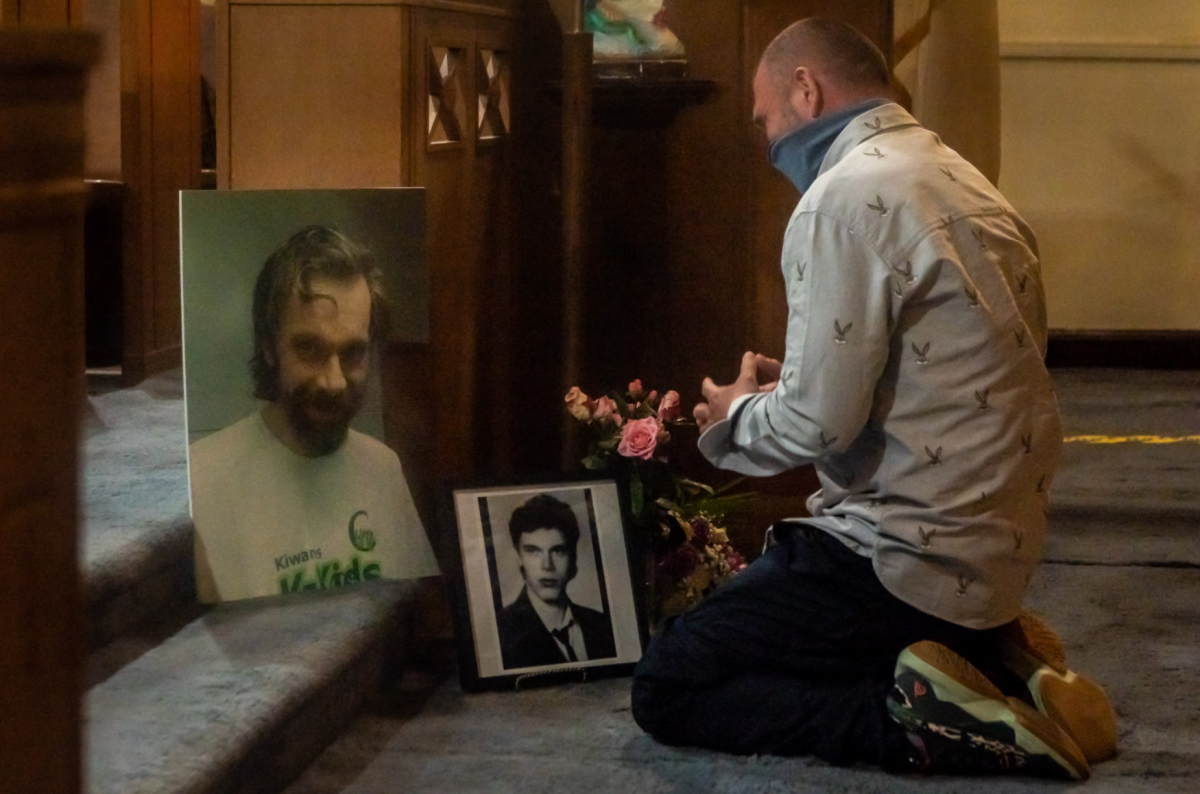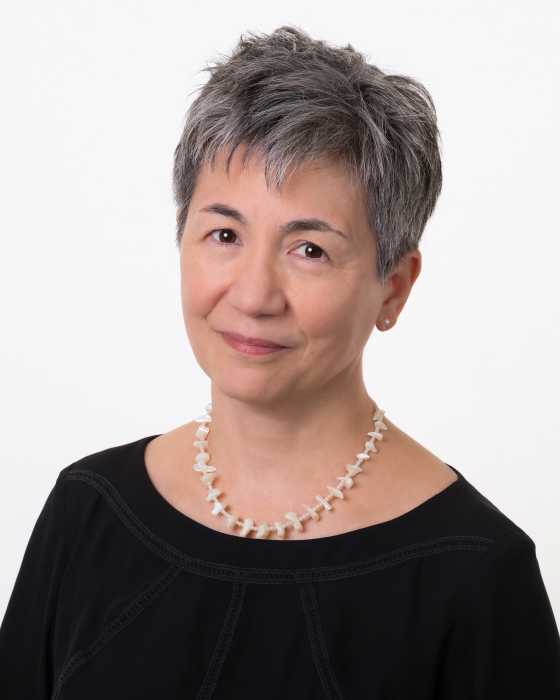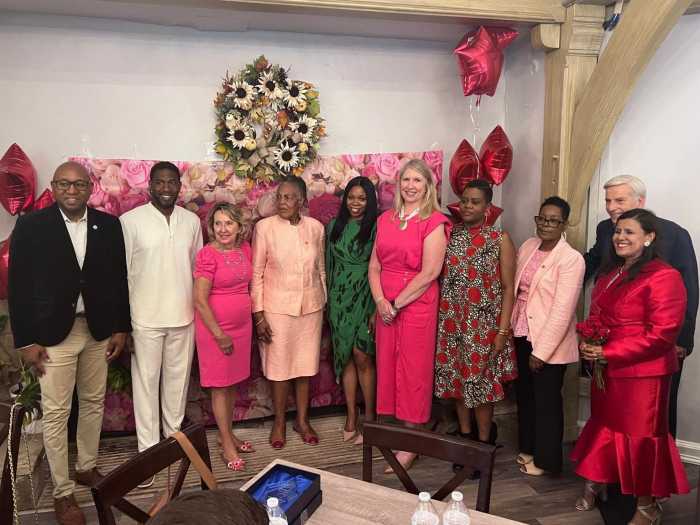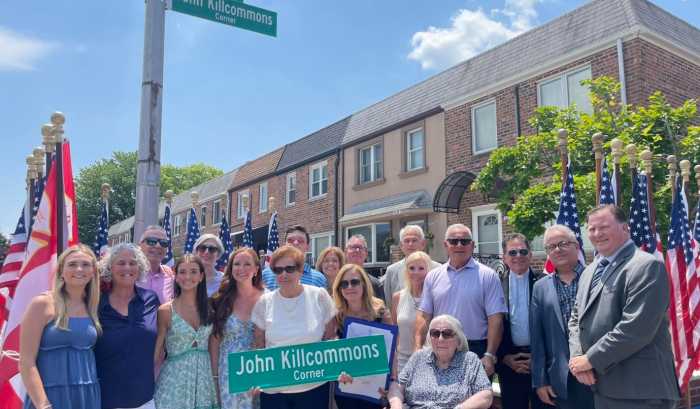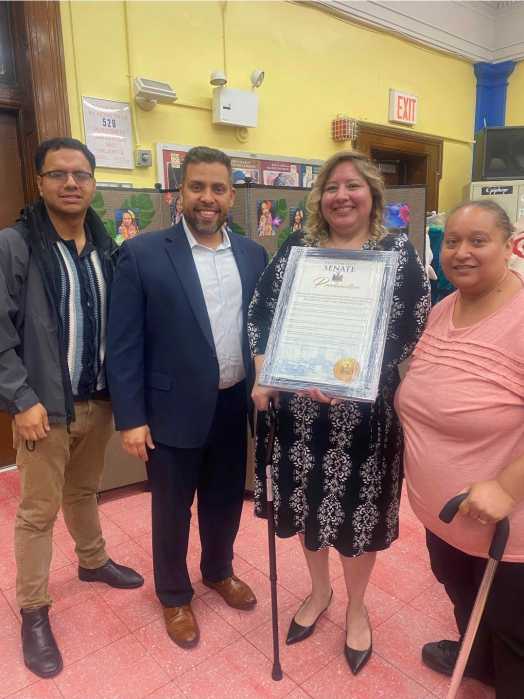A memorial service was held for Pawel Felicjancik at All Saints Priory in Ridgewood on April 16. Felicjancik, who was homeless in recent years, died on Easter Sunday after a long battle with alcoholism.
Felicjancik was born in Gdansk, Poland, where he served in the Navy before he immigrated to the United States in 1992. He was a divorced father of a son and daughter and also had two grandchildren.
Adhering to social distancing restrictions, about 50 family members and friends attended the service to pay their respect to a man, described by all as very handsome and loving but stubborn.
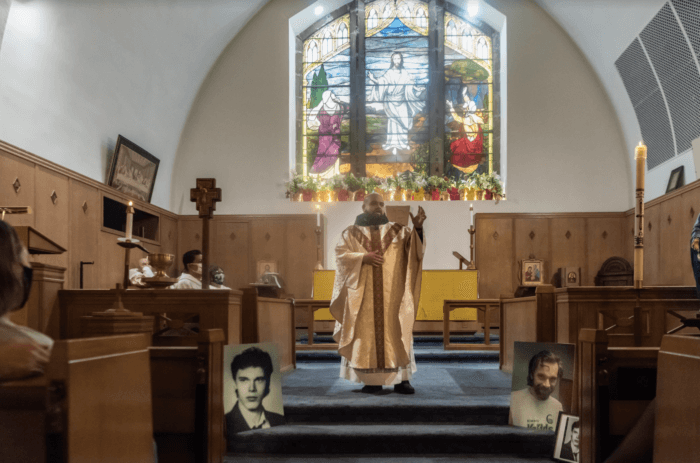
Father Michael recalled the first time he met Felicjancik — or Paul, as he called him — four years ago.
It was Thanksgiving, and in the middle of preparing a Thanksgiving meal for the senior center, a tall man with a long beard and hair entered the kitchen. Father Michael thought that Jesus had just walked in. Even though the cleric hadn’t invited Felicjancik to help cook, Felicjancik took over immediately.
Father Michael described how he had to remind Felicjancik to wash his hand and put on a hair net, gloves and an apron. Each instruction was met with a, “Don’t worry,” eliciting laughter from the crowd.
Father Michael detailed the following scene after he had asked Felicjancik to take the turkeys out of the oven.
“He opens the oven, doesn’t turn it off, doesn’t let it cool down, doesn’t put on oven mitts, sticks his hand in the oven, takes the tray of burning hot metal and puts it out on the counter. I said, ‘So this really must be Jesus’ because the oven was cooking at about 500 degrees. And he put the tray down, he turned around, and he went to the sink quietly, he put on the water, and he put his hands in the water, and I said ‘Pawel,’ and he said ‘yes’ and I said ‘Don’t worry.”
Father Michael knew immediately who Felicjancik was when he came into his life and shared that he was grateful to be celebrating his liturgy, knowing that he had been released from his suffering.
“I’m sorry that I didn’t speak his language, but Pawel belonged to me. In the same way, that he belonged to all of you. And I know that I belonged to Pawel. In the same way that you all belonged to Pawel,” Father Michael said.
Sister Marianne, who first met Felicjancik four years ago, admitted that she was upset over his death.
“He was just a person you could love,” she said. “He gave me light and gave me happiness. I was supposed to be here to help him, but he helped me tremendously. He was a definite light.”
Felicjancik’s friend Monica wanted him to be remembered as sweet, kind, genuine and funny. She shared that he was homeless on and off and that she would bring him clothes and food. Sometimes, she had to feed him because he was too sick.
“It was his addiction. He could have had help, but he refused,” Monica said of the Felicjancik, who used to work as a carpenter.
Krzysztof worked as Felicjancik’s foreman and knew him for over 14 years, describing him as the best carpenter he had worked with. Krzysztof recalled that Felicjancik took a shower at his house one time, and he urged him not to return to the street, but Felicjancik refused.
“I said, ‘Don’t go back over there,’ but he went straight under the bridge,” Krzysztof said.
Hoping to get Pawel off the streets, he offered him a job and a place to stay, but was turned down.
Father Michael showed Pawel’s family the basement, which the church converted into a shelter space with a kitchen with Felicjancik’s construction knowledge.
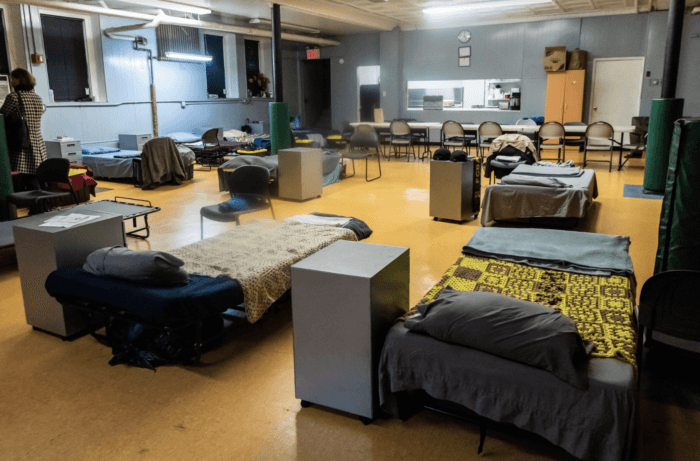
“It doesn’t look like the Marriott. This helps save the Polish homeless community in this area. What we did was we just took that whole group; they were all on the street, they all refused to go into programs, but we already had relationships with them. So we just picked them up, and we brought them to the church,” Father Michael said, who added that they offered Felicjancik to stay at their shelter many times, but he refused.
“I built that place; I’m not going to stay there,” Felicjancik said, according to Father Michael.
His longtime friends shared that he was a great dad and that they all would go on camping and skiing trips with the kids, leading everyday lives, before he spiraled further into alcoholism, which eventually led to a life on the streets.
“He was a good friend. I call him at three o’clock in the morning, ‘I have a problem,’ he doesn’t ask a question, he just came,”said friend Tomasz Szmigiel, who met Felicjancik in 1996.
The last time Felicjancik’s son Sebastian Felicjancik saw his dad was two years ago. He had lived with his dad for seven years and said that he didn’t know that he was living on the streets. Sebastian, though, had suspected the worst because not even the people closest to him could get in touch.
He attributes his dad’s death to a series of bad choices influenced by his illness. Sebastian and Felicjancik’s godson Kevin Koza remembered a man they would go on camping or fishing trips with when they were kids and who was a stand-up guy.
“My dad always said, ‘Out of anyone in the world, if you ever had a problem, you go to him. He’ll take care of you,’” Koza said.
Sebastian plans to spread some of his dad’s ashes at the camping sites they used to frequent and wants people to know this about his dad.
“I want them to know that, regardless of how they knew him or what they saw while they were walking down the street, the guy was a stand-up, oh gee, from the block straight from Poland, like, super cool,” his son said. “I’m talking coolest of the cool. He can be out there hanging out with like rock stars because he’s just that cool.”

